Italy's funeral workers protest as coffins pile up in Rome cemeteries
Funeral workers in Italy’s capital of Rome have waged a protest rally against a huge backlog of coffins piling up at cemeteries across the city, insisting that local authorities were not adequately managing the surge in COVID-19 fatalities.
Protesters on Friday laid funeral wreaths in front of the Temple of Hercules, close to Rome city hall, with a written sign on them reading, "Sorry, they don't allow us to bury your loved ones."
Funeral home managers said more than 2,000 bodies were being stored at Rome's sole crematorium, which can handle around 50 cremations a day, while mortuary rooms at other cemeteries were packed, awaiting burial or interment.
They further emphasized that some corpses have been in storage since the start of the year.
"Every few days we are told the cemeteries are blocked and they haven't got any more room to take in the dead," said the director of Italy's federation of funeral workers, Giovanni Caciolli.
Italy has so far reported 116,000 coronavirus-related fatalities, the majority of which have occurred in northern Italy. In recent months, however, the virus has claimed a rising number of victims in central and southern Italy.
The city council company that handles burials and cremations in Rome -- called AMA -- acknowledged in a statement earlier in the week that it was facing an unprecedented situation and was working to generate 60,000 new burial plots for the city.
"AMA is doing its utmost to deal with a steadily increasing number of deaths," it underlined, adding that Rome had registered 4,763 more deaths between October 2020 and March 2021 than in the same months of 2019/2020, with the increasing trend continuing into April.
According to the report, a local man plastered huge posters across the city earlier this week apologising to his mother, who died in early March but whose body still remains stuck in storage. The posters read, "I am sorry mum that I've not been able to have you buried yet."
This is while other European nations were also struggling to cope with sugring COVID-19 infections.
In Belgium, coronavirus cases were not declining as fast as hoped by health authorities, who announced on Friday that hospital were being pushed towards full capacity as government plans to ease a lockdown soon came under scrutiny just two days after they were declared.
Official data showed that more than 3,000 COVID-19 patients remained in hospitals with 930 of them in intensive care units (ICU). Of the country’s 2,000 ICU beds, 1,000 have been set aside for non-coronavirus cases.
“We are not at all on the downhill slide that we hoped to have in terms of infections,” health agency spokesman Yves Van Laethem said in a Friday news briefing.
The daily infection rate -- currently at a seven-day average of 3,884 -- has slightly declined since the lockdown began in late March, but the percentage of positive test results is up.
More than 23,000 people have died from COVID-19 in the country of only 11 million people, which is among the world’s highest per capita fatality rates.
Paris cemeteries face burial surge as French COVID deaths pass 100K mark
France, meanwhile, surpassed the bleak milestone of 100,000 people dead from COVID-19 this week, while a warden at a Paris cemetery has already been witnessing the death toll as she oversees a constant procession of burials.
The number of burials carried out at Raymonde Boulon’s cemetery in Paris’s south-eastern suburban city of Thiais was 700 higher in 2020 than in the previous year.
During the peak of mortality from the epidemic, between March and June 2020, one section of the cemetery alone carried out 305 burials, a figure Boulon said was “enormous.”
Some caskets arrive at the cemetery direct from hospitals and mortuaries -- for cases where there is no family to organise the burial, or they cannot afford it. Normally they would come twice a week, but during the worst period, these caskets were arriving almost daily, said Boulon.
Another hard-hit European country of Spain has so far registered nearly 3.4 million infection and 76,981 deaths from the COVID-19 pandamic, according to its health ministry data released on Friday.
This is whle public health experts have strongly criticized Madrid’s conservative mayor for her insistence on keeping restaurants open, blaming the decision as a key factor in the capital's high 14-day infection rate, which on Friday reached 372 cases per 100,000 people against the national average of 213.
Polish doctors cry for help as COVID deaths spike
As COVID-related deaths in Poland surpass 800 a day and the country hits a European record for excess deaths, epidemiologists have pointed to a major medical personnel shortage as one of the culprits.
When the pandemic began last year, Kinga Szlachcic-Wyroba, an anaesthesiologist in the Stefan Zeromski Specialist Hospital in Krakow, Poland, had to manage one COVID-19 patient and 10 others in intensive care with three other doctors.
Now, the third wave has hit Poland and the number of COVID-19 patients in intensive care stands at 17, with just four non-COVID patients. Nearly 80 percent of the COVID patients are expected to die.
Szlachcic-Wyroba, however, is still working with only three other doctors.
“We are physically doing our best but we are frequently unable to secure the care that we would like to provide,” she said in the ward’s break room for staff, insisting that when on shift they often can’t even take a break to sit down.
Szlachcic-Wyroba is exhausted from 24-hour shifts and comforting patients’ families, adding that the flood of critically ill patients in recent weeks surpassed “even my worst dreams”.
Across Poland, doctors have complained about long lines of ambulances at hospitals or rescheduled non-COVID surgeries for life-threatening illnesses.
According to Eurostat, Poland had only 2.4 doctors and 5.1 nurses per 1,000 citizens in 2017, among the lowest in the EU, even before the pandemic.
Many doctors have gone abroad in search of better pay, with health spending not enough to attract or retain staff.
That means deaths have spiked this year, doctors say, as COVID patients are reluctant to go to hospital, fearing poor conditions and patients suffering from other serious illnesses are neglected by specialists relocated to COVID wards.
After Brazil, Poland had the second highest cumulative number of confirmed deaths in the world the week of April 13, according to Our World in Data.
Germany’s Merkel demands new powers to impose lockdowns
In Germany, where the coronavirus infections stands at nearly 3.2 million and 80,387 deaths so far, Chancellor Angela Merkel called on lawmakers on Friday to approve new powers that would allow her to force coronavirus lockdowns and curfews on areas with high infection rates, arguing that a majority of Germans were in favour of stricter measures.
"The third wave of the pandemic has our country firmly in its grip," said Merkel, whose speech in parliament was interrupted by heckling from legislators of the far-right Alternative for Germany party, who are opposed to lockdowns.
"Intensive care workers are sending one distress call after the other. Who are we to ignore their pleas?" Merkel added.
Her government wants parliament to change the Infection Protection Act to enable federal authorities to enforce restrictions even if regional leaders resist them, hoping to alleviate pressure on intensive care units.
Pezeshkian condemns ‘savage’ US-Israeli attack on school that killed nearly 90
Hezbollah, Ansarullah warn US-Israeli aggression on Iran to engulf entire region
Russia strongly condemns US-Israeli aggression on Iran, calls for UNSC meeting
US, Israel begin another foolhardy military adventure, but it’s Iran that will end it
IRGC launches new wave of retaliatory missile strikes on US bases across region
VIDEO | Iranian flotilla returns after BRICS naval drill in S Africa
Iran FM says school massacre in latest Israeli aggression ‘will not go unanswered’
Iran’s retaliatory attack completely destroys sophisticated US radar system in Qatar


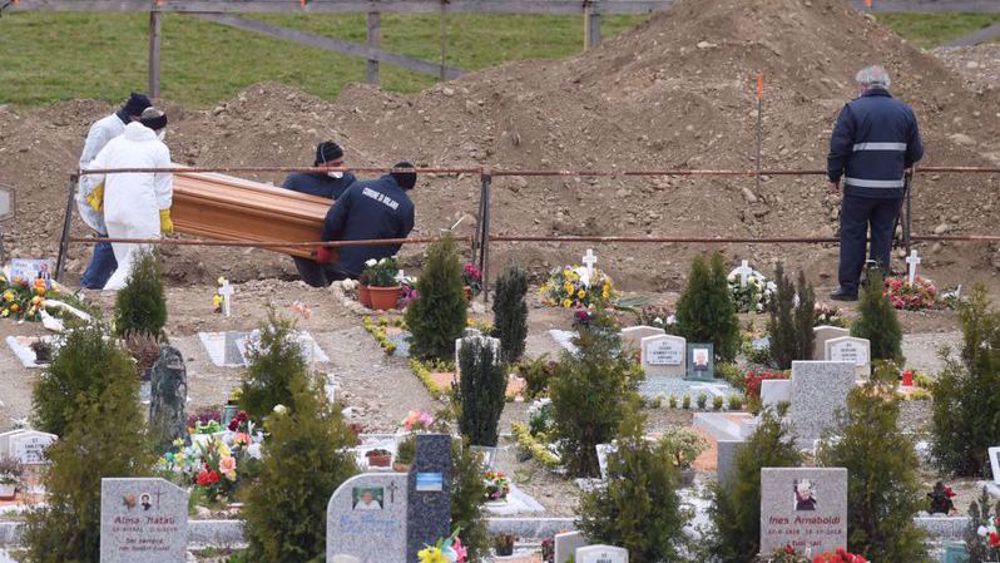
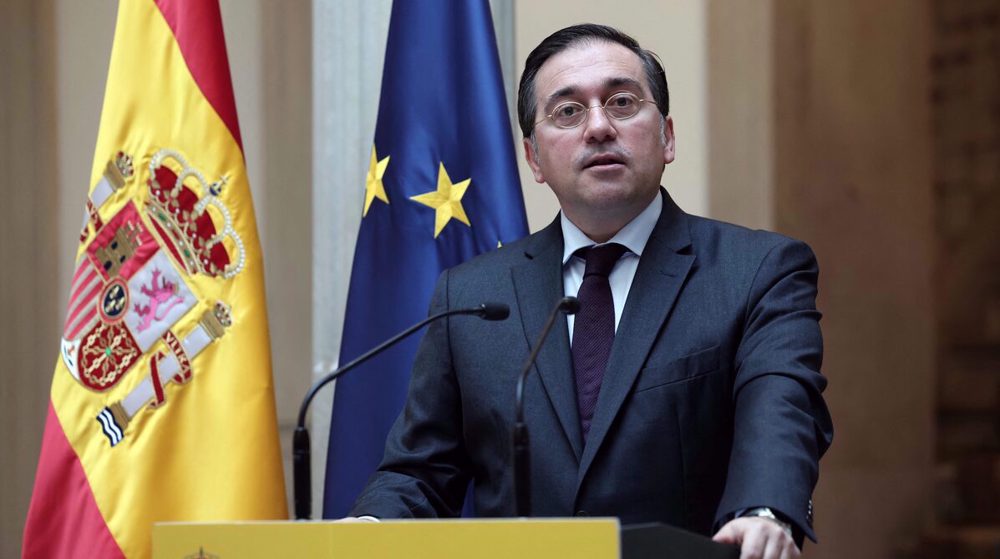
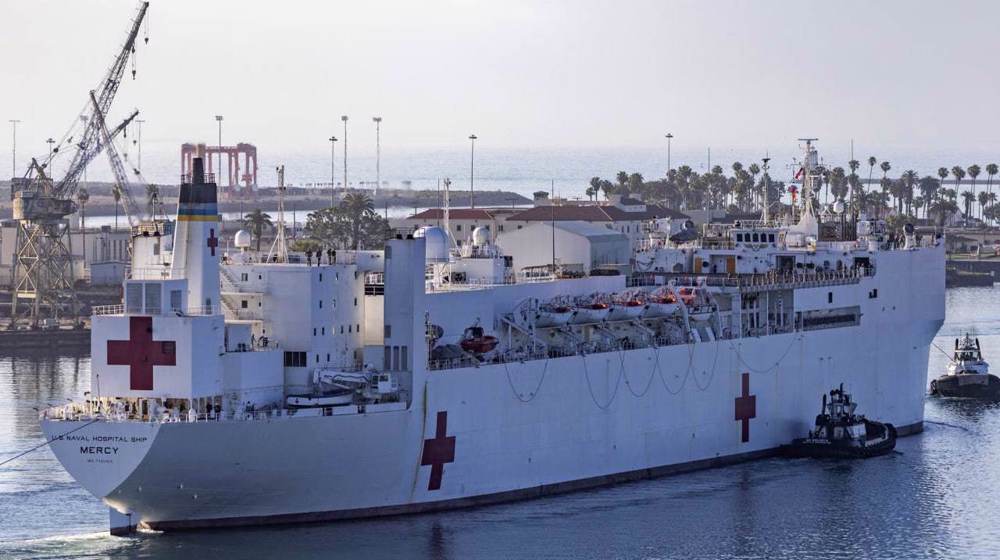
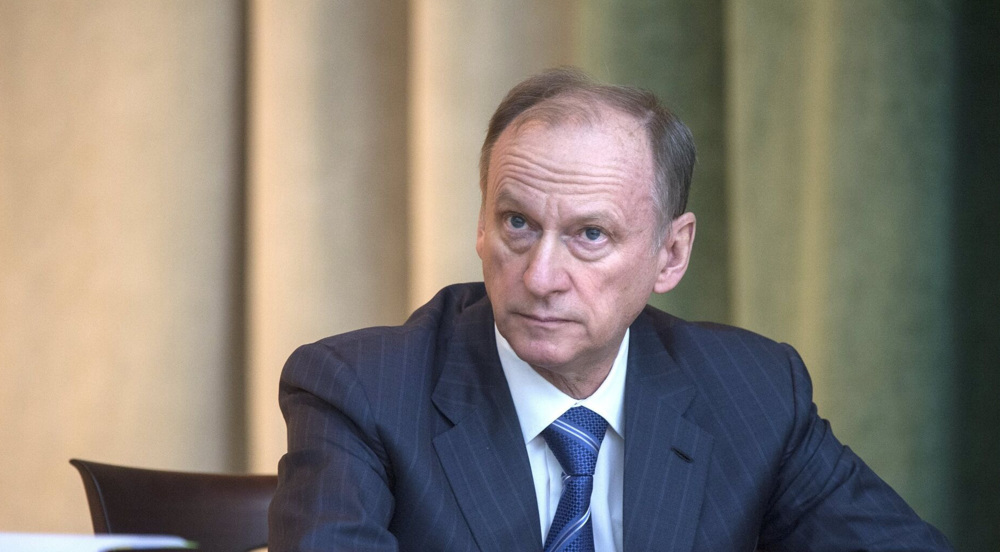




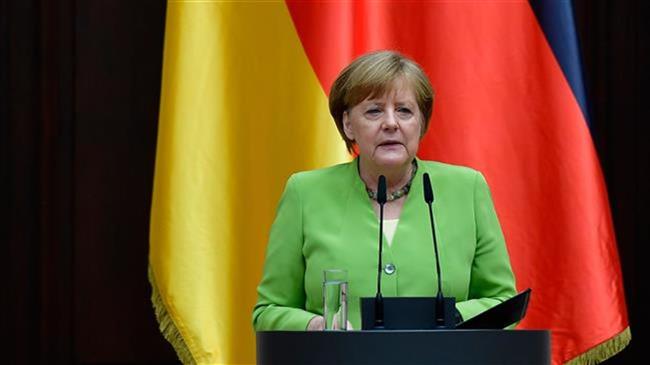



 This makes it easy to access the Press TV website
This makes it easy to access the Press TV website